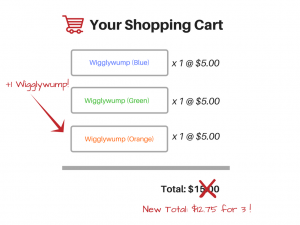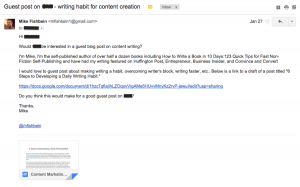
SEO is a puzzle to some. Researching the best SEO keywords is an essential part of your online strategy, that is, if you want to be seen.
Before slapping content up on a website, be sure you’ve done your keyword research. As a content marketer, you easily find that search engine optimization (SEO) can kill your online sales and prospects if not executed properly. In order to determine the best SEO keywords for your online strategy, take a more in-depth look at what makes effective keywords.
Besides the basic keyword rules, here are more tips for your SEO:
1. Don’t Fight the Competition
When choosing your keywords, pay close attention to “competitiveness.” In most big data analytics softwares and SEO tools like Moz, there should be an option for checking the competition on a specific keyword. The higher the percentage of use, the more competitive the keyword. Most people assess the number of searches a keyword brings in, but they don’t often consider the number of other websites out there competing to rank for that same keyword or phrase. Keywords that are less competitive are also easier to top in the ranks.
2. Stick to Your Niche
Online marketing is all about working within a niche. What’s great about the internet is that, for the most part, online communities have already been established around niches. Niche keywords that pertain to your industry can help you pull in more prospects with content in front of the right target audience.

Photo by Revital via Shutterstock.com
3. Be the Broken Record
Focus on your keywords and be the broken record. Pick your keyword, and stick with it. You might feel stupid repeating yourself with the same keyword in every article, but without establishing a solid keyword strategy, you could be lost in the sea of competition. This doesn’t mean keyword “stuffing” by any means. Instead of keyword stuffing, use your keywords in content religiously. No one will think twice about it, since we’re all desensitized to hearing the same broken record messages constantly in commercials, TV, radio, and daily life.
4. Go Where No Man (or Woman!) Has Gone Before
What makes you unique? Maybe you spend all your time with the usual keywords, when a unique keyword is all it takes to start pulling in prospects. If you’re wondering why your organic traffic sucks, then your keyword strategy could use an unusual approach. Use your own original term to head off the competition. Be first.

Photo by Revital via Shutterstock.com
5. Confirm with Adwords First
Before you decide on your keywords, test to see what comes up with an Adwords campaign. The amazing thing about Google Adwords is that it practically does the research for you. When you’re setting up a campaign, it will suggest all the top keywords that exist within your niche, which can give you a better idea of the types of queries that pass through the Google search algorithm.
6. Check the Backend via Analytics
After you’ve put keywords into play, always check to see how they perform. Once you stick to a keyword, keep your eyes on it by looking at your analytics to find out how much traffic it brings to your website. With analytics software, you should be able to get a better idea of the top keywords that perform on your website. With this, you can continue to adjust your SEO strategy across months by continuously refreshing your keywords with the top performing queries.
7. Keep it Local
If you do business primarily in one location or region, then add this place to your most frequently used keywords. Setting keywords will only get you so far, but reaching a local audience requires you to let Google know which people to direct to your pages. Using one of your main keywords alongside your location setting is a powerful way to target a local audience directly.

Photo by Revital via Shutterstock.com
8. Spy on the Competition
Sneak a peek at the competition’s most popular words. Search engine optimization software programs allow you to conduct keyword research by catching a glimpse of your competitors’ top ranking words. These come in handy when you’re developing a niche, since popular content gives you a good indication of the types of keywords and topics that work.
9. Test Keywords with a Search
Before you decide on a keyword, test the waters. Take the queries and keywords you’ve come up with and plug them into not just Google, but others such as Bing, YouTube, DuckDuckGo, and others (who knew AskJeeves and Dogpile still exist?). You may be surprised to find that your keyword is corrected or comes up worded differently. This will help you assess which keyword phrases are searched most.
10. Long Turn of Phrase
Time to get artsy with the keyword creation. So collecting commonly searched keywords is great, but what if you want to bypass all that hard work and reach a customer who just clicked enter? Everyone is using the same keywords, because they’re all coming from the same place. A good SEO keyword strategy means turning your small keyword phrase into a longer, more unique phrase. Otherwise, even a phrase that doesn’t seem competitive could mean a loss to the competition.
How do you execute SEO? Please leave a comment and share this with your network!
Digital & Social Articles on Business 2 Community(43)







